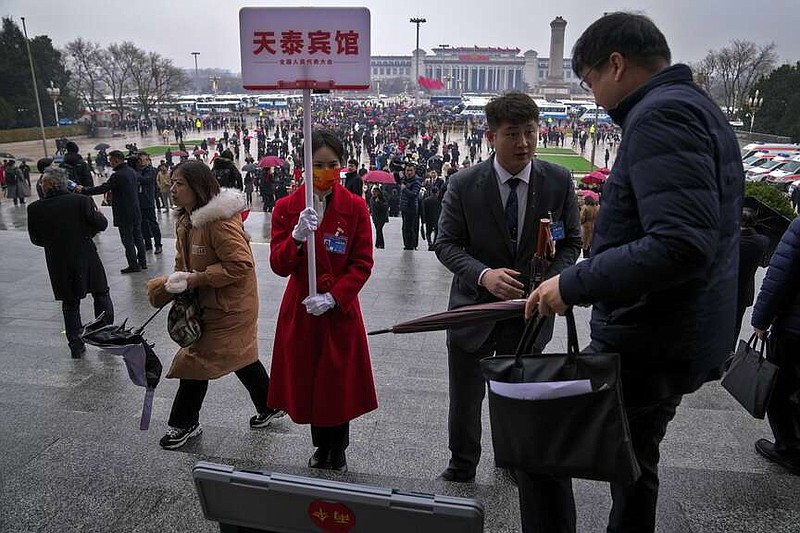BEIJING -- China's blueprint for its economy in 2024 is replete with goals and promises, but it's also notable for not spelling out specific moves to attain long-promised reforms that foreign businesses and investors have been hoping for.
The work report presented Tuesday by Premier Li Qiang to the National People's Congress outlined plans for modest increases in overall spending and a hefty 7.2% jump in funding for the military.
The ruling Communist Party's target is to grow the economy by about 5% this year, an ambition that economists say may be hard to attain. Li said China also will focus on supporting research and industries to attain breakthroughs in key technologies, including computer chips.
Such goals are in line with leader Xi Jinping's aim to strengthen China's self-reliance and power in advanced technologies as Beijing and Washington spar over technology and national security concerns.
Li's work report is designed to showcase for the nation achievements in the past year and convey the top leadership's priorities for this year. But it also provides insights into the direction of policies that affect both domestic and foreign companies.
The speech did little to address concerns that have led foreign businesses to reconsider their investment strategies in China, said James Zimmerman, a lawyer and former head of the American Chamber of Commerce in Beijing.
Apart from the ambitious growth target, "There is no reform, no liberalization, no action plan and no messaging of reassurance," he said. "One can only guess that the strategy is to stay the course and hope that things will correct themselves."
A decision to cancel the annual news conference by the premier that usually wraps up after the congress finishes has added to a sense of diminishing transparency, he said.
Tianchen Xu of the Economist Intelligence Unit said the report mostly reiterated what the government has been saying for the past six to nine months.
What's needed are moves to liberalize investment in telecommunications and healthcare, for example, or laws to ensure private businesses are able to collect on unpaid debts.
"The key is that strong commitments need to be matched by actions -- we haven't seen much progress so far," Xu said in an emailed comment.
Chinese markets have languished in recent months, and shares in Hong Kong fell on heavy selling of technology stocks Tuesday, with the benchmark Hang Seng index sinking 2.6%.
Shares of e-commerce giant Alibaba fell 3.3%, Baidu fell 5.7% and JD.com, another major e-commerce company, lost 7.5%.
"There was little surprise that the GDP growth target was set at around 5% again, as lowering the target would have further weakened confidence," Lynn Song, chief economist for Greater China at ING Economics, said in a report.
